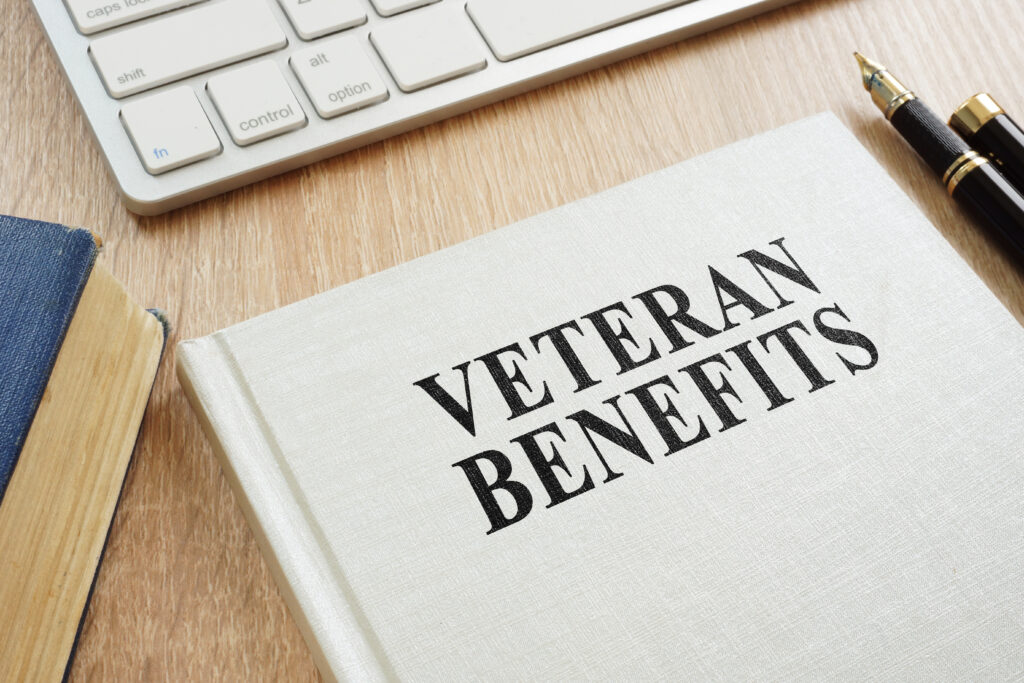
In recognition of the sacrifices made by veterans and their families, the Department of Veterans Affairs (VA) offers a variety of benefits to surviving spouses and dependents. These benefits can provide financial assistance, healthcare, educational opportunities, and other forms of support. Understanding the available benefits and eligibility criteria is crucial for surviving family members to make the most of the support offered by the VA. In this blog, we will provide an overview of these benefits and how to receive them.
Types of VA Benefits Available

Explore the information below to learn about some of the different benefits and resources you may have earned as a spouse, child or parent of a veteran or service member:
Dependency and Indemnity Compensation (DIC)
DIC is a monthly benefit paid to surviving spouses, children, or parents of veterans who died on or after January 1, 1957. The basic monthly rate for a surviving spouse is $1,437.56, but it increases for each dependent child and if the surviving spouse needs aid and attendance or is housebound. There is also a transitional benefit of $356.16 per month if the surviving spouse has children under 18.
Survivors Pension
The Survivor Benefit Plan (SBP) is a Department of Defense program that provides monthly income to eligible survivors of service members who die on active duty or retire. The program provides up to 55% of a service member’s retired pay in the form of a cost-of-living-adjusted annuity. The annuity is paid for life to dependents, and the primary beneficiary is usually the surviving spouse.
Read More: If Someone Dies Does a Spouse Get Their SSDI Benefits?
Educational Assistance (Chapter 35)
VA Survivors and Dependents Educational Assistance (Chapter 35) is an education benefit for eligible spouses and children of certain veterans. If you are eligible, you can receive up to 45 months of full-time or equivalent benefits for: College, Business, Technical or Vocational Courses. High School Diploma or GED.
Healthcare Benefits (CHAMPVA)
The Civilian Health and Medical Program of the Department of Veterans Affairs (CHAMPVA) provides comprehensive healthcare coverage to surviving spouses and dependents of veterans. This program helps eligible family members access necessary medical services and treatments at a reduced cost. To be eligible, the veteran must have died from a service-connected disability, and the surviving spouse or dependent must not be eligible for TRICARE, the healthcare program for active-duty and retired military personnel and their families.
Home Loan Guaranty
The VA Home Loan Guaranty helps eligible surviving spouses obtain home loans with competitive interest rates and other favorable terms. The program can assist with purchasing, constructing, or improving a home, as well as refinancing an existing loan. To be eligible, the surviving spouse must not be remarried and the veteran must have died as a result of a service-connected disability.
Application Process for VA Benefits
- Gather Required Documents: Marriage certificate (for spouses), birth certificates of children (for dependents), veteran’s death certificate or proof of service-connected disability (if applicable), Social Security numbers for all applicants, any relevant medical records or disability ratings.
- Identify Eligibility: Determine which VA benefits apply to your situation (e.g., DIC, CHAMPVA, educational benefits).
- Create an Account: Register on the VA’s official website (VA.gov) or visit a regional VA office.
- Complete Application Forms: Fill out the specific forms for each benefit program (e.g., VA Form 21-534 for Dependency and Indemnity Compensation). Make sure to attach required documents to support your application.
- Submit Application: Submit the completed application forms and documents either online, by mail, or in person at a VA office.
Read More: If Someone Dies Does a Spouse Get Their SSDI Benefits?
Get Legal Help With SSDI From Tabak Law
Are you a surviving spouse or a dependent of a veteran seeking benefits? Don’t settle for less than you’re entitled to. Contact Tabak Law today for a free case review to discuss your SSDI claim and the possibility of receiving benefits. Our experienced attorneys have a proven track record of securing favorable outcomes for our clients, and we’re ready to put our professionalise to work for you.
Nothing posted on this website is intended, nor should be construed, as legal advice. Blog postings and site content are available for general education purposes only.
